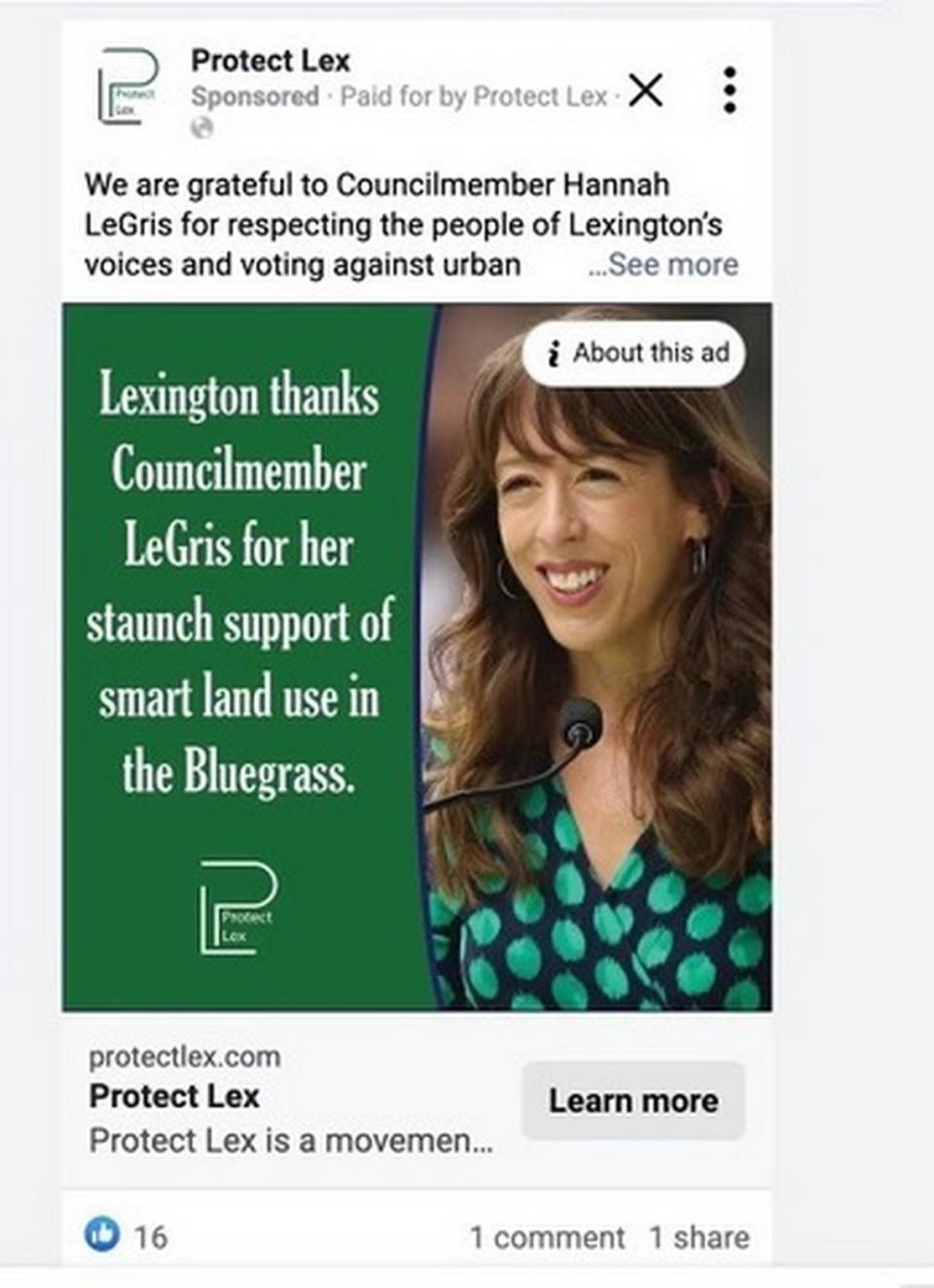New PAC focusing on land use enters Lexington council races. Who is it backing?
A new political action committee has been formed to back certain Lexington council candidates who they say support smart growth initiatives.
Protect Lex was formed in March.
Its first advertisement, which ran last week, thanked Lexington-Fayette Urban County Councilwoman Hannah LeGris for voting against the expansion of the city’s urban service boundary in June 2023. LeGris was one of three council members who voted against expansion. The other two council members were Vice Mayor Dan Wu and David Sevigny. LeGris has no opponents in the 2024 council race.
Political action committees, which are referred to as unauthorized campaign committees in Kentucky, are separate and are not supposed to coordinate with specific candidates. They can back multiple candidates.
Charlie Rowland, a lawyer and former council candidate who is helping run Protect Lex, said the group was formed after realizing many people did not understand the council was voting to expand the urban service boundary in 2023.
Protect Lex will help educate the public on candidates’ positions on land use policies, he said.
Donors for Protect Lex are not yet available. But those donors will be disclosed on April 24, the next reporting deadline for political action committees.
“We feel like there is a need through political avenues to make sure that land use issues in Lexington are a focal point of all local elections,” Rowland said.

Rowland said it’s likely Protect Lex will run advertisements in the May primary for council races. There are primaries in the First, Fourth and Seventh council districts.
Rowland said Protect Lex is not just focusing on preserving farmland. It’s about good growth policies that make Lexington unique, he said.
“Public sentiment has shown overwhelming support for not expanding the boundary and instead focusing our resources on our current neighborhoods,” Rowland said.
Another group, Lexington for Everyone, was formed in 2022 to advocate for the expansion of the boundary. That group is a nonprofit, a 501 C(4). It does not have to disclose its donors and has refused to do so. As a nonprofit, it can advocate for an issue but can’t be involved in council races.
Other political action committee committees, including those associated with builders, real estate agents, labor unions and utility companies, have donated to council races in the past.
Rowland said Protect Lex was not formed in response to Lexington for Everyone.
A different fight over land use prompted its creation: the recent dust up over the expansion of Bluegrass Station. The Kentucky General Assembly had set aside money in its two-year budget for a possible expansion of the runway into Bourbon County. Landowners near Bluegrass Station fought back and the project was dropped from the final budget.
“That showed that landowners can use considerable political will to change something that many politicians had said was a done deal,” Rowland said.
The council voted to expand the urban service boundary after the Urban County Planning Commission recommended the city’s growth boundary, where growth can occur, should remain. Ultimately, the city decided to add a little more than 2,900 acres to the city’s growth boundary, with much of that land along the Richmond Road and Athens Boonesboro Road corridor near Interstate 75.
The city has hired a consultant to come up with a plan on how those acres will be developed. The consultant’s master plan must be completed by the end of this year.

